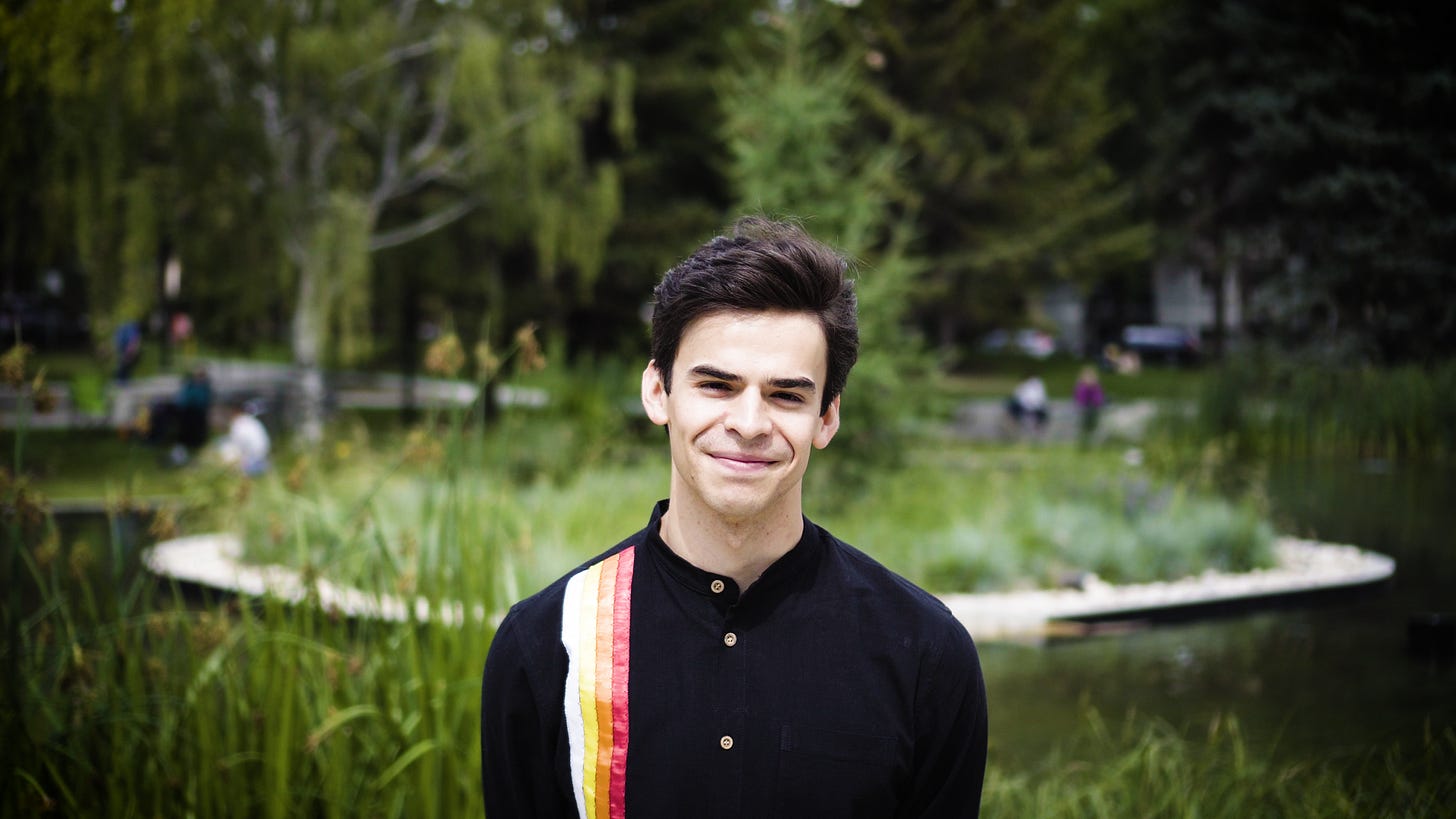Why is it important to change the name of the Oliver neighbourhood?
An Interview with Hunter Cardinal, Director of Story, Naheyawin and Resident of the Oliver Neighbourhood.
On June 23, 2020, the Oliver Community League called on the City of Edmonton to change the name of the neighbourhood. This initiative presents itself as a precedent for systemic change in the City. The way we name a neighbourhood matters. As our perception and understanding of colonialism change and adapt through time, it is important to reflect back to the colonial origins and meaning of the names that populate our public spaces.
In this interview, we talked with Hunter Cardinal, Director of Story at Naheyawin and resident of the Oliver Neighbourhood, to know more about the story behind this initiative.
This interview has been edited and condensed for clarity.
Urban Narratifs: Why is it important to change the name of the Oliver neighbourhood?
Hunter Cardinal: I think now more than ever we as a community need an idea and a value to gather and rally around, something that reflects who we are. What we are finding is that the name, the person, and the actions that it is associated with don’t reflect what is at the core of this community. This is one of the most densely populated neighbourhoods in Edmonton, and I think it is also one of the most diverse neighbourhoods in the city. Having a name that reflects that should be our goal.
I think now more than ever we as a community need an idea and a value to gather and rally around, something that reflects who we are.
UN: How did this idea come about?
HC: This idea isn't actually new, it's been around for quite a while. Most notably during Canada 150, residents in the Oliver community brought up several times that this name needed to go and that we should be having a conversation about it. Now, of course, that was during Canada 150 where we as Canadians, not just as Oliver residents, were starting to really examine our history and take ownership like that.

UN: What has been the reception of this idea so far?
HC: The reception has been fantastic. There's been a really wonderful conversation that has been started, that is important and also very thoughtful and intelligent. A lot of people did not know that this community was actually named after someone and if they did know that it was named after Frank Oliver, they actually didn’t know the full history of what he did. So that’s been very interesting. Of course, once they hear about that, they jump already to the question of ‘yeah, of course, the name will need to change because those actions don’t reflect who we are today.’ The question then becomes ‘what should we have this name be? What do we want to have this community be named after? And who are we today?’
Frank Oliver’s actions don’t reflect who we are today.
UN: What needs to happen next?
HC: We want to have this conversation continued and then find a name that would reflect who we are as a community. So we are calling on the City to help lead an inclusive consultation process that is indigenous-led that involves the communities that Frank Oliver affected and that also allows us as a community to decide the name that we want to be named after. Afterwards, we're going to ask that the City implement the name that is brought forward through this consultation process.
Lastly, we recognize that societies that have a colonial history like Canada are struggling to reconcile their past. We knew that we needed new tools and processes and ways of thinking about naming. We were inspired by our indigenous ancestors’ thoughts, ways of being, and ways of thinking about naming to create such tools and processes. We included indigenous governance principles to help inform a new process and to build that identity as a community. Specifically, we were inspired by indigenous governance principles that talk about ‘renewal’, that talk about making space for people and also places to change. So we thought that instead of creating a one-and-done process for naming, that we would end up creating a cyclical process.
A cyclical process where, once in a generation, communities would gather, reflect, and think about who they are, the spirit of their home, and the community that they want to be. The process can take either a path of celebrating the name that they have or perhaps a path of having a conversation about renaming where they can have an opportunity to really figure out who they want to be today, who they are today and also who they want to be in the future.
Follow more stories in our social media:

